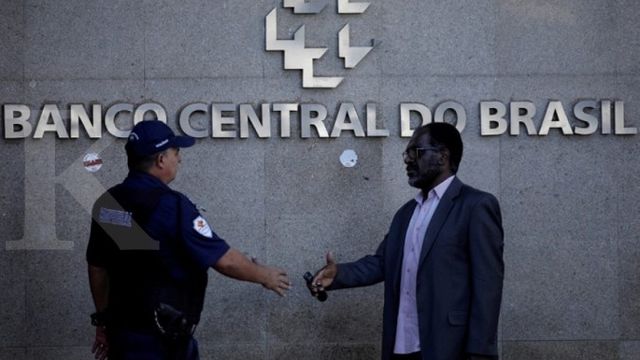This Nation Increases Interest Rates to 14.25%, the Highest in Nine Years: An Examination of Economic Implications and Future Outlook
This Nation Increases Interest Rates to 14.25%, the Highest in Nine Years: An Examination of Economic Implications and Future Outlook
Blog Article

In recent months, one nation has taken a significant step in its monetary policy by raising interest rates to an impressive 14.25%. This marks the highest level of interest rates seen in nearly a decade, a decision that has sparked discussions among economists, investors, and policymakers worldwide. The implications of such a drastic monetary policy change are far-reaching, affecting everything from consumer spending to foreign investment and overall economic stability. Slot dana 5000
The decision to raise interest rates often stems from various economic factors, primarily aimed at combating inflation, stabilizing the currency, and fostering a conducive environment for sustainable growth. Inflation, which has been on the rise globally, poses serious challenges for many countries. By increasing interest rates, the central bank of this nation aims to manage inflationary pressures, ensuring that the purchasing power of its citizens remains intact.
Higher interest rates typically lead to increased borrowing costs for both businesses and consumers. For individuals, loans for cars, homes, and personal expenditures become more expensive, potentially cooling off consumer spending, which is a crucial driver of economic growth. Businesses may also hesitate to take on new debt for expansion, weighing the costs against potential returns. This slowdown in borrowing can lead to a decrease in economic activity, but it is sometimes necessary to prevent an overheated economy from spiraling into a recession.
In addition to domestic implications, the increase in interest rates can attract foreign investment. Higher returns on investments in domestic assets, such as government bonds, can entice international investors looking for safer, more profitable avenues. This influx of capital can provide a much-needed boost to the country’s economy, fostering growth and stability. However, it also places additional pressure on the currency, which may appreciate against others, potentially impacting export competitiveness.
The effects of this substantial interest rate hike extend beyond immediate economic considerations. The psychological impact on consumers and businesses cannot be understated. As citizens witness rising rates, concerns about job security and financial stability may lead to cautious spending behaviors. Businesses could adopt a more conservative approach to investment and hiring, which may create a feedback loop that further constrains economic growth.
Moreover, the long-term effectiveness of this monetary policy decision will depend on various factors, including global economic conditions, domestic political stability, and the central bank's ability to communicate its strategies effectively. If inflation persists despite the rise in interest rates, it may prompt additional increases, leading to a more severe slowdown in the economy. Alternatively, if inflation is brought under control, the central bank might have room to lower rates again, encouraging growth.
Critics of the interest rate hike argue that such a significant increase could push the nation into a recession. They contend that the risks associated with high borrowing costs may outweigh the benefits of controlling inflation, particularly in an environment where consumers are already burdened by debt. Conversely, proponents maintain that this strategy is essential for ensuring long-term economic health, arguing that allowing inflation to run unchecked could have worse consequences.
As this nation navigates its economic landscape, the decisions made by central banks and policymakers will be closely scrutinized. Stakeholders from various sectors will be eager to observe how these changes impact not only the domestic economy but also the global financial system. The outcome of this interest rate hike could serve as a critical case study for other countries facing similar inflationary pressures and economic challenges.
In conclusion, the decision to raise interest rates to 14.25%, the highest in nine years, is a bold move that reflects the complex interplay of inflation, growth, and economic stability. Whether this decision will yield the desired results remains to be seen, but it undoubtedly sets the stage for an intricate dance between monetary policy and economic performance in the months and years to come.